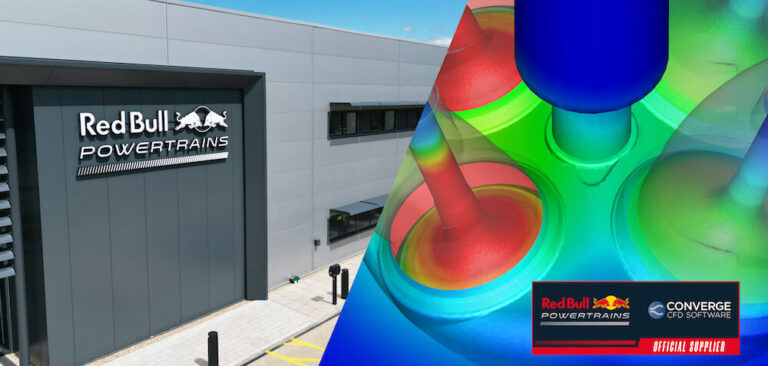A new partnership has been formed between Convergent Science and Red Bull Powertrains which will see the power unit manufacturer use Convergent Science’s Converge computational fluid dynamics software in the development of a new power unit for the 2026 Formula 1 World Championship season.
Convergent Science will support Red Bull Powertrains by conducting an analysis-led design process of the engine’s combustion system, with the aim of optimizing fuel spray and combustion chamber parameters. Red Bull Powertrains will use Converge’s detailed combustion models to predict the performance of differing engine designs, enabling new simulations with different geometry configurations to be set up simply and efficiently, and the evaluation of a wider range of design options.
The engine, which is currently under development, will operate using 100% sustainable fuel to meet the updated F1 regulations that come into effect in 2026.
“We’re thrilled that Red Bull Powertrains has chosen Converge to support the development of its next-generation racing engine,” said Kelly Senecal, co-founder and owner of Convergent Science. “We work hard to keep Converge on the cutting-edge of simulation technology, and it’s exciting to see Red Bull Powertrains take advantage of our software’s advanced capabilities to design a best-in-class power unit in a few short years. We look forward to watching Oracle Red Bull Racing race in the coming seasons.”
“The development of our power unit for the 2026 season is evolving day by day in our new Red Bull Powertrains factory, with a highly motivated group of engineers and mechanics,” said Christian Horner, Oracle Red Bull Racing team principal and CEO.
“We continue to invest in people and facilities to bring competitive power units to the grid, and to achieve that target we need the best tools in every area. Converge CFD undoubtedly meets that need and will help us to build a race-winning ICE. Their highly detailed combustion models enable us to visualize and simulate the inside of the cylinder during combustion, a process that will accelerate our development of a more powerful and efficient engine for the next generation of Formula 1.”


